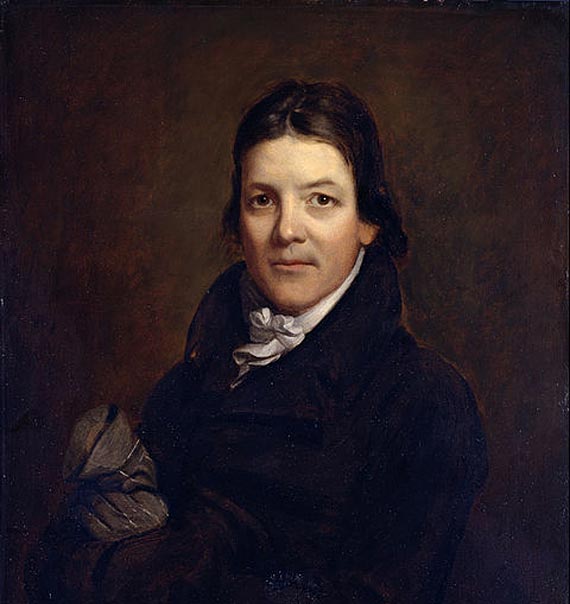“A fig for the Constitution” if it does not protect our most basic rights was John Randolph’s nineteenth century estimation of the value of the Constitution. In 2021 his words of warning are even more applicable.
What power does the Constitution have to protect the First Amendment’s guarantee to peacefully assemble and the free exercise of religion when the government can declare a crisis and issue orders closing houses of worship? A fig for the Constitution! What power does the Constitution have to enforce the Fifth Amendment’s prohibition of the government’s “taking without due process of the law” when the government can declare a crisis, and take away private property by closing and bankrupting private businesses? A fig for the Constitution! What power does the Constitution have to protect private citizens’ Second Amendment Rights when a husband and wife who used legally owned firearms to protect their homes from leftists’ mobs are targeted by government for prosecution? A fig for the Constitution! What value is the Constitution’s guarantee of free speech when government sponsored monopolies in the digital and mainline media can censor speech that violates their neo-Marxist “community standards?” A fig for the Constitution!
For most conservatives, especially Southern conservatives, the Constitution is venerated with a passion similar to a religious zealot’s viewing of a holy icon. John Randolph of Roanoke, Virginia, had a differing view. “A fig for the constitution…. I consider the Constitution to be a dead letter…. You may entrench yourself in parchment to the teeth …the sword will find its way to the vitals of the constitution. I have no faith in parchment, sir, I have no faith in the abracadabra of the constitution…. When the scorpion’s sting is probing us to the quick, shall we pause to chop logic?”[1] James Madison warned that mere words written and ratified in all solemnity would still be but a parchment barricade. “A mere demarcation on parchment of the constitutional limits of the several departments is not a sufficient guard against those encroachments which lead to a tyrannical concentration of all powers of government in the same hands.”[2] What benefit can “we the people” expect from the Constitution in contemporary (2021) America? The Constitution is “a dead letter” in modern America where neo-Marxists control centers of social influence and political power.
For the last 160 years (1861-2021) the limitations on federal power written into the original Constitution have been under relentless attack. But attacks against the Constitution did not begin with Lincoln and the Republican Party. In the 1840s John C. Calhoun warned about the dangers of the gradual wearing-down of Constitutional limitations on federal power. “The written restrictions and limitations of the constitution, would oppose no effectual resistance. They would all be gradually undermined by the slow and certain process of construction; which would be continued until the instrument itself, would be of no more force or validity than an ordinary act of Congress—nor would it be more respected. [Those opposing] … would become the subject of ridicule and scorn—as mere abstractions—until all encroachments would cease to be opposed. Nor would the effects end with the absorption of the reserved powers.”[3]
Today we see the fulfillment of Calhoun’s prophetic warnings regarding the destruction of all Constitutional restraints. “Its [Federal supremacy] would be a revolution in the character of the system. It would virtually destroy the relation of co-ordinates between the federal government and those of the several States, by rendering the negative of the latter [State nullification], in case of conflict with it [Federal Government], of no effect…thereby, elevate the federal government to the absolute and supreme authority of the system, with liberty to assume, by construction, whatever power the cupidity or ambition of a dominant party or section might crave…. It would, in a word, practically transform the federal, into a consolidated national government, against the avowed intention of its framers—the plain meaning of the constitution itself—and the understanding of the people of the States, when they ratified and adopted it.”[4]
Calhoun, just like Randolph and Madison understood that the Constitution was not self-enforcing, “…the constitution of the United States is a written instrument; for this, of itself, cannot possibly enforce the limitations and restrictions which it imposes.”[5] For folks like Madison, Randolph, and Calhoun the ultimate enforcer of the Constitution was the Sovereign States. By the end of 1860 an irreconcilable ideological divide had developed between Americans holding radically different views on what constituted the Constitutional limits on federal power. The issue was whether the Constitutional Republic of Sovereign States with Constitutional limitations enforced by real states’ rights—inclusive of nullification and secession—would remain or whether a new form of supreme federalism would rule America. Lincoln’s bloody bayonets settled the question in favor of a newly created supreme federal government. This was a radical and illegitimate change in the nature of the Constitution. The original Constitution was forcefully changed from an instrument that defined and limited the power of the federal government to an instrument that empowered the federal government to become the sole judge of the limitations, if any, on federal powers. This radical change occurred outside of the authority of the original Constitution. The radical change in American government occurred not with the consent of the governed but via military force, conquest, and occupation. As Jefferson Davis noted, coercion is the alternative to consent. America’s legitimate Constitutional government was exterminated and an illegitimate supreme federal government was established. Under America’s new government, the supreme federal government is the only power vested with the authority to judge the extent of its powers under the Constitution.
Thomas Jefferson declared that “the Constitution does not assign to any branch the authority to interpret its meaning.”[6] In the Kentucky and Virginia Resolutions of 1798 Jefferson and Madison set the standard for who has the ultimate right to determine and enforce the Constitutional limitations imposed on the federal government—assigning that right to “we the people” within our sovereign state. To leave such matters in the hands of a few unelected, elitists justices would be tantamount to tyranny. “It is a very dangerous doctrine to consider the judges as the ultimate arbiters of all constitutional questions. It is one which would place us under the despotism of an oligarchy.”[7]
The unconstitutional destruction of real states’ rights set America on a course toward despotism. General Lee recognized this in his 1870 letter to Lord Acton when he observed that if the victors in the War for Southern Independence used their newly acquired political power to centralize power in Washington, DC, then the United States would become as all other empires, “Aggressive abroad and despotic at home.” America’s ruling elites have created a Deep State empire that has fulfilled Lee’s prediction. Sadly, America is no longer the “land of the free” but has become a neo-Marxist tyranny. The scorpion’s sting is probing us to the quick, shall we pause to chop logic?
[1]John Randolph, as cited in, Russell Kirk, John Randolph Of Roanoke: A Study In American Politics (Liberty Press, Indianapolis: 1978) 61.
[2] Madison’s in Federalist No, 48.
[3] Calhoun, On the Constitution and Government, in The Works of John C. Calhoun, Vol 1, (Appleton & Co., New York, 1851), 304.
[4] Calhoun, On the Constitution, 299.
[5] Calhoun, On the Constitution, 234.
[6] Quirk & Bridwell, Judicial Dictatorship (Transaction Publishers, New Brunswick, NJ: 1995), xiv.
[7] Jefferson as cited in, Judicial Dictatorship, 3.







